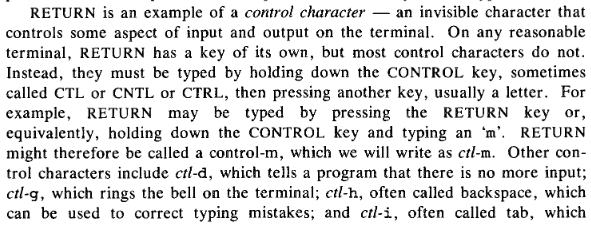

Good points. I’ll have to ponder this for a while.


Good points. I’ll have to ponder this for a while.


Dilemma: Fedora has introduced and worked on a lot of things that make “Year of Linux on the Desktop” more likely. Even if UNIX purists disagree with the direction, Fedora is what Ubuntu used to be back in the day. Linux for humans.
At the same time, it’s possible due to corporate backing. American corporate backing even. A part of me thinks that if we can’t get there as a community without corporate influence, then it’s all for nothing. I want the community model to not just be an ethical alternative, but that this model of cooperation also produces the best results.
(PS. I’m open for having my view changed, maybe I’m thinking about this the wrong way.)
This could be a Black Mirror episode. A sentient ad that felt pain when skipped fighting to avoid pain. It would have no option than to try to get around ad-blockers and be sneaky and feel bad about annoying users, but the alternative is pain.
Found it in the classic The UNIX Programming Environment from 1984:

But then, this is for return, which technically isn’t “enter”, but nowadays they are sort of interpreted the same by programs?
Isn’t ctrl-m the “enter” equivalent?
YAST will soon be deprecated though, but I hope something with similar functionality will come.
I have never owned a computer with more than 8gb RAM.
does that mean that pipes will work backwards?


You know how the ending of LOST or Game of Thrones can bring up feelings in people? That’s how it was for me when Gnome 3 first came out. I had been using Gnome 2 for a few years and had a good workflow, and then suddenly, everything changed. Back then Gnome 3 was buggy and lacked a lot of things, which didn’t help. It also didn’t help that the devs took a “the problem is you” stance to all feedback. That said, I use Gnome now, and I like it, it took some years to mature and become good. But the feeling is still there sometimes.


Regular release distros do security updates, backported if needed. Rolling release means introducing unknown security bugs until they are found and fixed. To me, the whole dilemma between regular and rolling is do I want old bugs or new bugs? But the security bugs get fixed on both.
Open source is free for everyone, I think the objection is more about an american company being able to directly influence the decisions, operating under US jurisdiction, etc.
Kernel yes, but coreutils? It’s ls, sleep, who, pwd, and so on.
I know, but do they? Has big tech contributed to the code base significantly for coreutils specifically? sed and awk or ls has been the same as long as I remember, utf8 support has been added, but I doubt apple or google was behind that.
Do large tech companies contribute a lot to the GPL coreutils?
Was the wish also to ride it?


The way I understand it is that the security team supports releases for 5 years. If you are running an older version of ubuntu than that and want security backports, you need to get the extended support. The difference in Debian is that when a release is too old, the security team simply doesn’t backport security fixes. You can pay someone to do it, but it’s not a part of what Debian as a project does.
That card game isn’t called that anymore, but 20 years ago it was the standard name for a well-known card game.
I wonder how much is philosophy and how much is not wanting legal troubles. Those things aren’t contradicting of course.
I work with old people and can tell you it’s not just when they’re young.
As someone not from the US, what can we do to help?